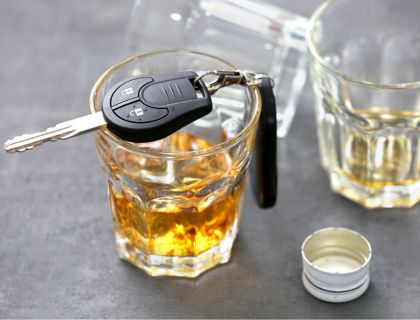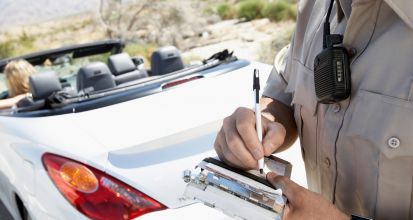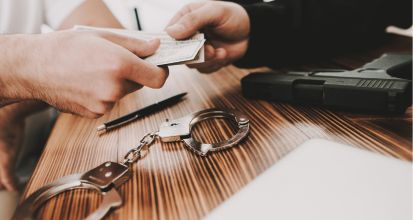 The law sets a clear blood alcohol concentration (BAC) limit for drivers in Victoria. Individuals found guilty of exceeding this limit risk heavy fines, licence revocation, or compulsory behaviour change programs, among other legal consequences. The legal limit for driving under the influence in Victoria is a BAC of 0.05. This limit provides a standard for what is considered driving under the influence (DUI) under Victorian law and enhances road safety.
The law sets a clear blood alcohol concentration (BAC) limit for drivers in Victoria. Individuals found guilty of exceeding this limit risk heavy fines, licence revocation, or compulsory behaviour change programs, among other legal consequences. The legal limit for driving under the influence in Victoria is a BAC of 0.05. This limit provides a standard for what is considered driving under the influence (DUI) under Victorian law and enhances road safety.
Keep reading to understand the details of drink driving laws and the repercussions for exceeding the BAC limit. The information in this article is general; if you or a loved one have been caught drink driving, we highly recommend speaking to one of our experienced drink driving lawyers for specific advice on your situation.
Does The Legal BAC Limit Apply Across The Board?
As mentioned, the legal BAC limit is 0.05. This means your blood shouldn't contain more than 0.05g of alcohol in 100ml of blood. However, this limit doesn't apply across the board. The following groups of people have a legal BAC limit of 0.00:
- People still learning to drive (learners)
- Driving instructors
- Commercial passenger vehicle drivers (buses, taxis)
- Truck drivers with trucks heavier than 4.5 tonnes of GVM
- Holders of P1 or P2 licences
- Recently relicensed drivers after revocation
Exceeding the limit may attract the following charges, regardless of your driver category:
- Driving under the influence (DUI)
- Driving under the influence of both drugs and alcohol
If a roadside test determines you exceeded the BAC limit, you will be charged in court for one of the offences mentioned above. Refusing a roadside breath test can also result in severe penalties, including fines and licence suspension. You can either plead guilty or not guilty during your court appearance. A guilty plea shows cooperation and may result in a less severe penalty. A not guilty plea results in a contested hearing where you'll present evidence against your charge for the magistrate to make a final decision.
What Is The Fine For Driving Under The Influence?
According to the Road Safety Act 1986 (RSA) section 49(1)(a), driving under the influence could result in different fines and penalties. These legal consequences vary depending on your DUI record and BAC. Here's a breakdown:
First-Time Offenders: First-time offenders receive the least severe penalties for their DUIs. These penalties are more of a warning to discourage them from repeating the offence. First-time offenders can receive up to 20 penalty units for their offence with no jail term. A penalty unit currently stands at $192.31 as of 1st July 2023. 20 penalty units translate to roughly a $3,846 fine.
Second-Time Offenders: Second-time offenders are drivers found guilty of DUI for the second time. Second-time offenders with a BAC of less than 0.15 will receive 60 penalty units (roughly an $11,538 fine) and a maximum six-month prison sentence. If their BAC exceeds 0.15, they'll receive 120 penalty units (roughly a $23,077 fine) and a maximum 12-month prison sentence. The penalty also applies to refusing a requirement.
Third-Time Offenders: Being guilty of a third DUI makes you a third-time offender. Third-time offenders receive the harshest penalty under Victorian law. Third offenders with a BAC of less than 0.15 will receive the same penalty as second offenders with a BAC exceeding 0.15. They'll get 120 penalty units, translating to about a $23,077 fine or a 12-month maximum prison sentence. If their BAC exceeds 0.15, they'll receive 180 penalty units, which equals about a $34,620 fine and an 18-month maximum prison sentence.
Are There Other Punishments Aside From Fines And Imprisonment?
The type of punishment you receive for your DUI depends on your licence type and whether you're a repeat offender. Besides fines and imprisonment, your DUI charge may also have the following legal consequences:
Licensed Drivers: Fully licensed drivers with BACs above 0.05 but below 0.07 (low–range drinking offence) will have their licence suspended for 3 months and get 10 demerit points. Fully licensed drivers with a BAC above 0.07 but below 0.15 will suffer the same and have an ignition interlock installed in their vehicles for six months.
Probationary Drivers And Learners: As mentioned, the legal limit for learners and probationary drivers is 0.00. Drivers exceeding this limit will see their licences revoked for 3 months and have an ignition interlock system installed in their vehicles for at least 6 months after relicensing.
What About My Vehicle?
DUI offenders with BACs of 0.10 or more could have their vehicles impounded or immobilised for 30 days. Repeat offenders and drivers who remove their alcohol ignition interlocks may have their vehicles immobilised for longer periods, sometimes up to 12 months.
Conclusion
Drunk driving is one of the leading causes of accidents on Australian roads. The BAC legal limit allows law enforcement to have a standard measure for charging DUI offences and keeping the roads safer. Despite being well-intentioned, these laws can sometimes catch us off guard. If you’ve been charged with drink driving, it’s a good idea to speak to an experienced drink driving lawyer to know where you stand. Call us today on 03 9733 2344 to book a free consultation or fill out the form on the right, and one of our experienced lawyers will speak to you about your situation and help you minimise the consequences of your drink driving incident.


